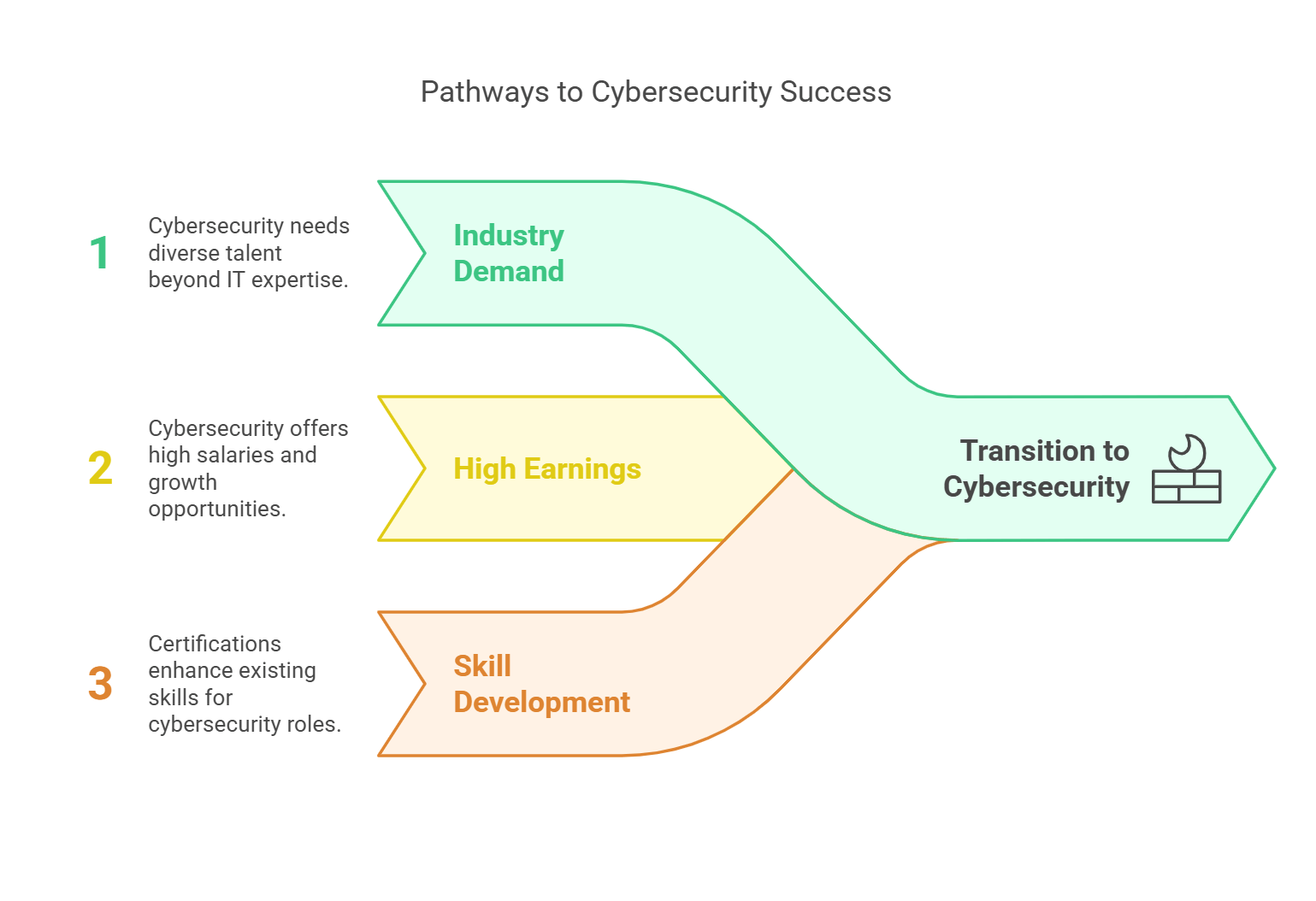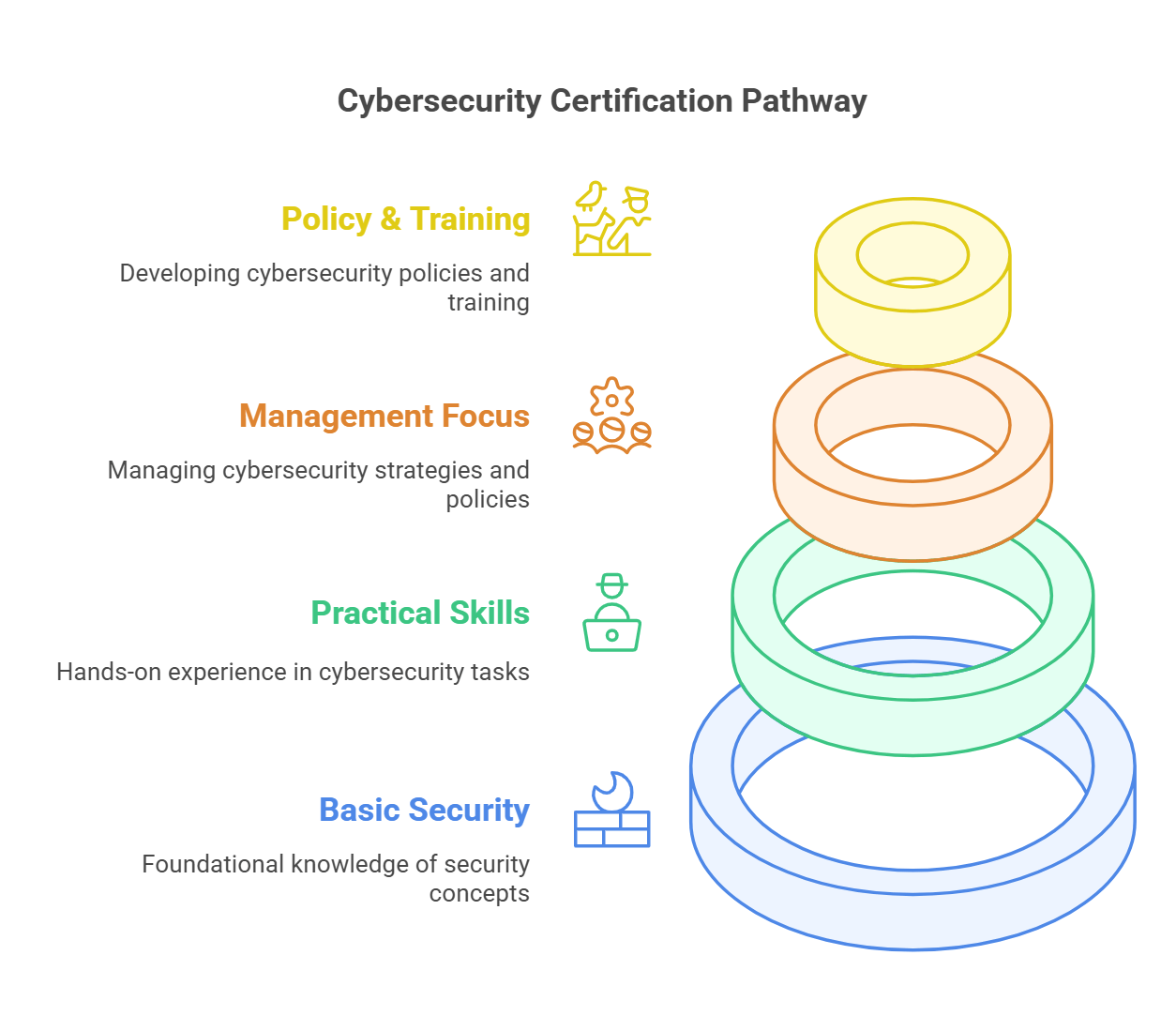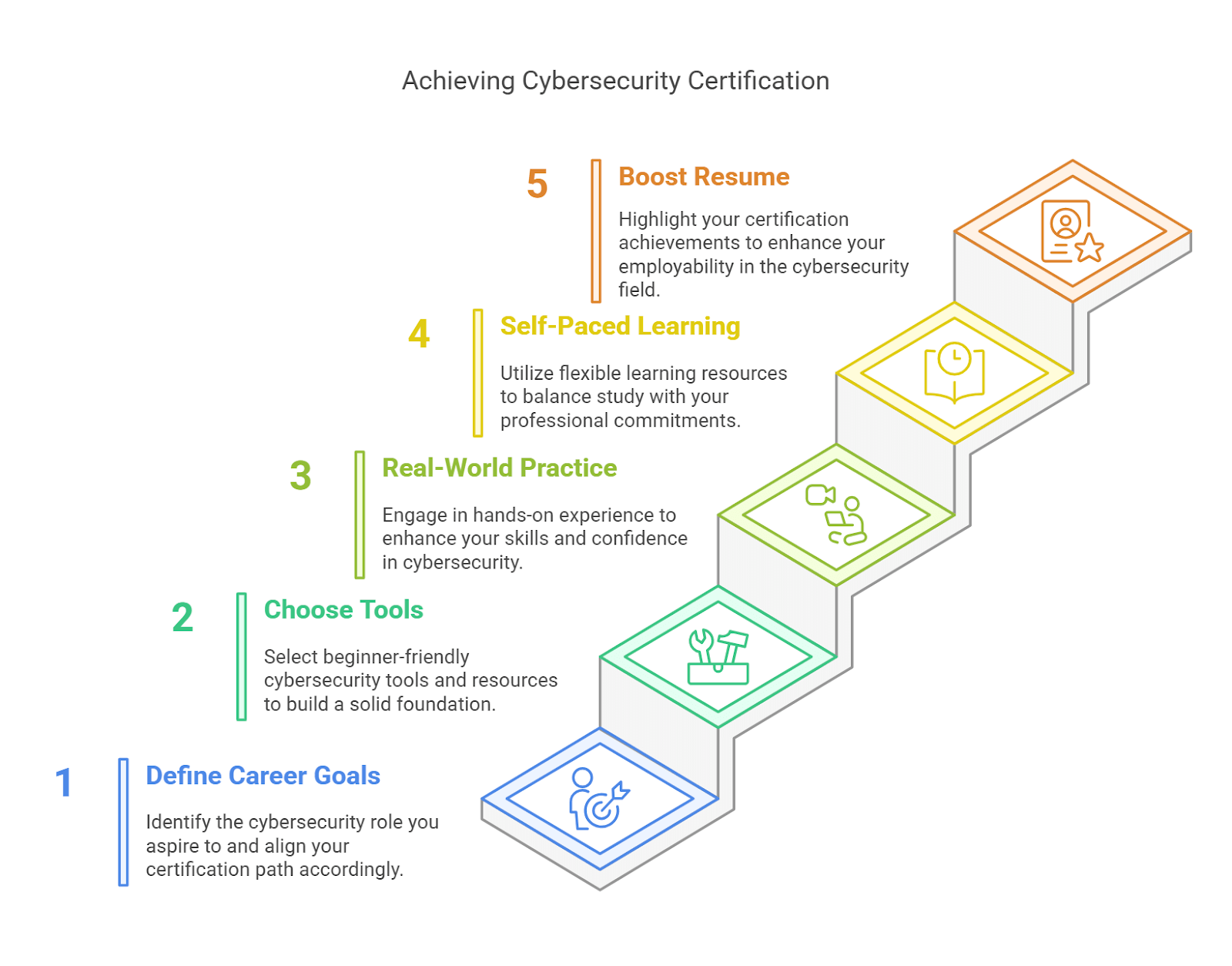Table of Contents
- Why Cybersecurity Certification for Non-IT Professionals is Worth Pursuing
- 1. A Growing Industry Open to All Backgrounds
- 2. High Earnings and Opportunities
- 3. Skill Development Beyond Technology
- Top Cybersecurity Certifications for Non-IT Professionals
- How to Get Started with Cybersecurity Certification for Non-IT Professionals
- How Cybersecurity Certification Impacts Your Career
- How Certification Enhances Earning Potential
- ACSMI Certification – Empowering Non-IT Professionals
- Final Thoughts
- Frequently Asked Questions (FAQs)
Cybersecurity is a rapidly growing industry that offers high earning potential and exciting career opportunities. Traditionally seen as a field exclusive to IT professionals, cybersecurity is now more inclusive than ever. Cybersecurity Certification Test programs are designed to cater to professionals from various industries, allowing individuals from non-IT backgrounds to transition into this high-demand field. In this guide, we’ll explore why Cybersecurity Certification Test for non-IT professionals is worth pursuing, how it can enhance your career, and how you can succeed in this evolving sector, with the help of resources like ACSMI’s 400+ modules.
Why Cybersecurity Certification for Non-IT Professionals is Worth Pursuing

1. A Growing Industry Open to All Backgrounds
Cybersecurity is no longer limited to IT professionals. Today, organizations need a broad range of talent to address cybersecurity challenges, extending far beyond technical expertise. Industries like law, healthcare, and management all benefit from professionals who understand the risks and frameworks surrounding cybersecurity. Certification programs bridge the gap for non-IT professionals, enabling them to enter the cybersecurity field confidently.
2. High Earnings and Opportunities
Cybersecurity professionals are among the highest-paid workers in the tech industry. With entry-level salaries starting at $70,000 and advancing to six-figure salaries for specialized roles, the demand for cybersecurity expertise continues to rise. For non-IT professionals, certifications provide an entry into a lucrative career with many opportunities for growth and advancement.
3. Skill Development Beyond Technology
Cybersecurity certifications aren’t just about learning technical concepts. Many certifications focus on analytical thinking, policy-making, and risk management—skills that professionals from non-IT backgrounds might already have. These certifications enable you to apply your existing skill set in a cybersecurity context, making you a valuable asset to any organization.
Top Cybersecurity Certifications for Non-IT Professionals
If you’re just starting and have no prior IT experience, the following certifications are excellent starting points:

1. CompTIA Security+
A foundational certification that covers basic security concepts, network security, and threat management. It’s ideal for individuals entering the cybersecurity field and provides the skills necessary for entry-level positions.
2. Certified Cybersecurity Technician (CCT)
This certification provides practical, hands-on experience, offering non-IT professionals a solid foundation in cybersecurity responsibilities while developing technical skills.
3. Certified Information Systems Manager (CISM)
For those interested in managing cybersecurity strategies rather than implementing technical tasks directly, CISM is an excellent choice. It’s particularly suited for professionals with a background in business or management.
4. Cybersecurity Awareness Training Programs
These are great for non-IT professionals interested in focusing on policy-making or training staff. Organizations like ACSMI offer specialized modules to master these topics and prepare you for non-technical roles in cybersecurity.
Each certification aligns with specific job roles, so selecting the right one based on your career goals is key.
How to Get Started with Cybersecurity Certification for Non-IT Professionals

Step 1: Define Your Career Goals
Think about the type of role you want to pursue. If you’re interested in management, certifications like CISM might be a good fit. For more technical roles, start with certifications like Security+.
Step 2: Choose Beginner-Friendly Tools
Don’t rush to advanced certifications. Start with foundational programs like CompTIA Security+ or ACSMI’s beginner-friendly modules, which will provide a solid foundation in cybersecurity concepts.
Step 3: Prioritize Real-World Practice
Look for certifications like CCT or programs offered by ACSMI, which emphasize hands-on experience. Real-world practice is crucial for building your confidence and competence.
Step 4: Leverage Self-Paced Learning Resources
Many non-IT professionals juggle work and study, so platforms offering flexibility, like ACSMI, are ideal. ACSMI provides modules for learners at all levels, allowing you to learn at your own pace.
Step 5: Boost Your Resume with Certification
Once certified, highlight your accomplishment on LinkedIn or during job interviews. Employers value candidates who take the initiative to earn certifications, particularly in a high-demand field like cybersecurity.
How Cybersecurity Certification Impacts Your Career
Cybersecurity certifications are more than just qualifications; they are your ticket to a fulfilling, future-proof career in an industry that continues to grow. Understanding the Google Cybersecurity Certification Price can help you plan your investment in gaining valuable skills and advancing in this dynamic field.
Career Opportunities
Cybersecurity certifications for non-IT professionals can open doors to a wide range of job opportunities:
-
Compliance Specialist: Ensure organizational processes adhere to security regulations.
-
Cybersecurity Analyst: Identify and mitigate security risks—an excellent entry point into the tech industry.
-
Risk Management Consultant: Advise companies on implementing security frameworks and preventing data breaches.
-
Project Manager in Cybersecurity: Lead cross-functional teams addressing complex security challenges.
Cybersecurity certifications help bridge your previous expertise with cybersecurity, adding value to roles that require both technical knowledge and industry-specific experience.
How Certification Enhances Earning Potential
Certified professionals often earn more than their peers due to the specialized nature of their skills. Here's a breakdown of potential salaries for common roles filled by non-IT professionals with cybersecurity certifications:
-
Compliance Specialist: $75,000 – $90,000
-
Project Manager in Cybersecurity: $90,000 – $120,000
-
Cybersecurity Analyst (Entry-Level): $60,000 – $80,000
The combination of cybersecurity skills with expertise in other fields such as law, risk management, or project management gives professionals a competitive edge, making cybersecurity certifications a high-return investment.
ACSMI Certification – Empowering Non-IT Professionals
ACSMI provides an exceptional opportunity for individuals from non-IT industries looking to succeed in cybersecurity. With over 400+ modules, ACSMI offers real-world skills and professional confidence, preparing learners for certification exams and long-term career growth.
Key Features:
-
Custom Learning Tracks: Pathways designed for certifications like CISM, Security+, and other beginner-to-expert modules.
-
Self-Paced Education: Ideal for working professionals balancing other commitments.
-
Practical Scenarios: Hands-on exercises simulate real-world security challenges.
-
Expert Support: Courses designed by cybersecurity veterans ensure alignment with certification requirements.
Explore ACSMI resources here to begin your cybersecurity certification journey today.
Final Thoughts
Earning a cybersecurity certification for non-IT professionals is not only achievable—it’s a strategic move toward securing a future in a high-demand industry. No matter your previous expertise, cybersecurity certifications offer a clear and practical path to success, breaking down barriers to entry into this fast-growing field.
By pairing your learning with ACSMI’s 400+ modules, you’ll build both theoretical knowledge and hands-on skills, placing you miles ahead in the cybersecurity landscape. Don’t hesitate—start your certification journey today with resources crafted for your success and open the door to a promising career.
Frequently Asked Questions (FAQs)
1. Can non-IT professionals pursue certifications in cybersecurity?
Yes, certifications like Security+, CISM, and others were specifically designed with non-technical individuals in mind, focusing on building foundational knowledge and skills.
2. Do I need technical experience to start?
No prior technical experience is required. Certifications such as CompTIA Security+ or ACSMI’s beginner modules are designed for newcomers and focus on foundational concepts.
3. Will certification guarantee me a cybersecurity job?
While certification isn’t a guarantee, it significantly boosts employability by validating your skills and enhancing your credibility with employers.
4. How long does it take to earn a certification?
Most entry-level certifications take between 2-6 months to complete, depending on your pace and dedication.
5. Can I advance from entry-level certifications?
Absolutely! Start with foundational certifications and gradually progress to more specialized areas of cybersecurity, with pathways supported by ACSMI.
6. How does ACSMI help in the certification process?
ACSMI’s 400+ modules enhance your certification preparation with self-paced learning, hands-on labs, and tailored study tracks to suit your career goals.

Leave a Reply